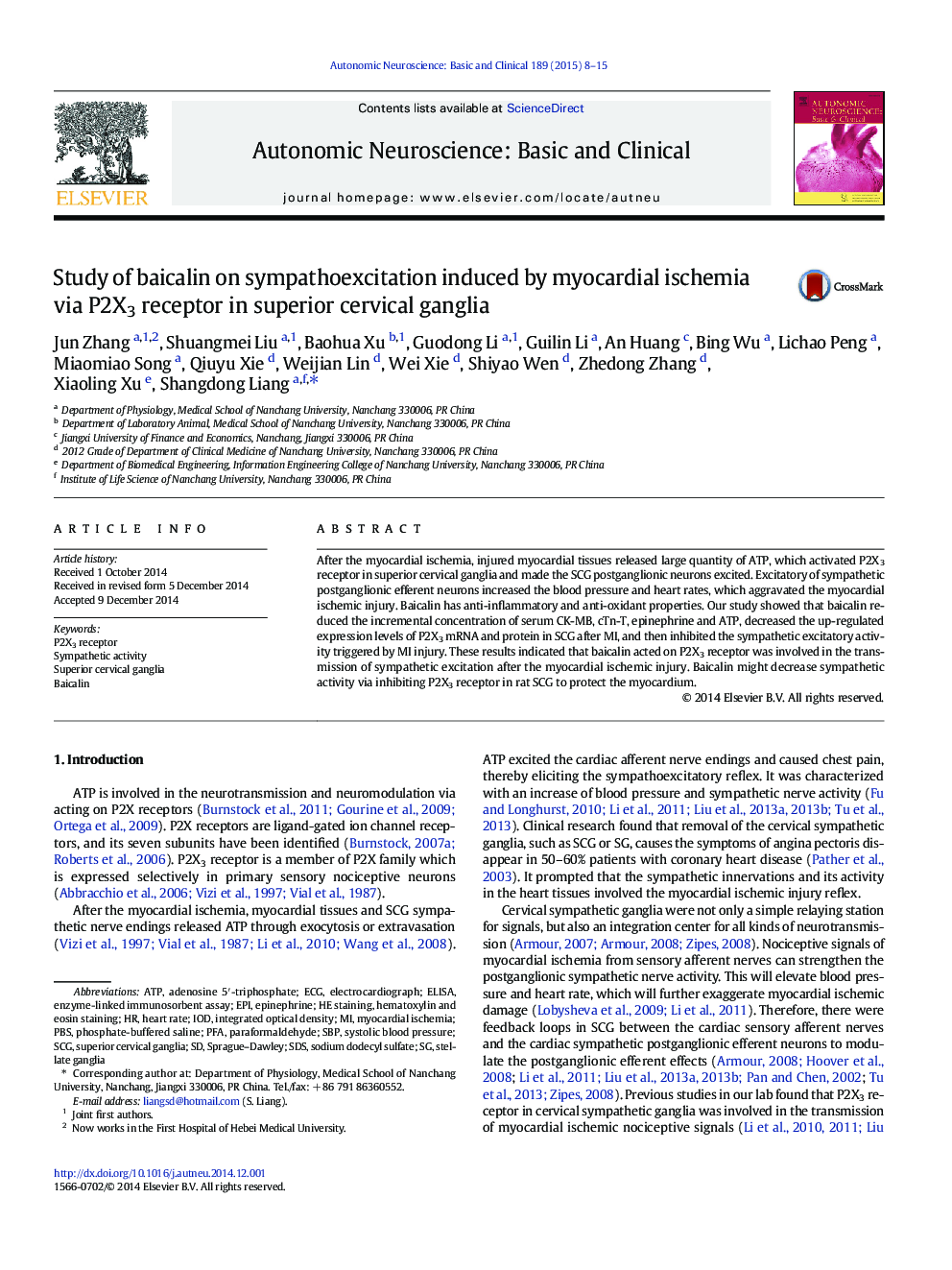| Article ID | Journal | Published Year | Pages | File Type |
|---|---|---|---|---|
| 6003945 | Autonomic Neuroscience | 2015 | 8 Pages |
â¢Myocardial ischemia induced up-expression of P2X3 in SCG.â¢Activation of P2X3 in SCG aggravated sympathetic excitatory activity.â¢Baicalin decreased blood pressure, heart rate and P2X3 expression.â¢Baicalin reduced ischemic damage through blocking P2X3 signaling.
After the myocardial ischemia, injured myocardial tissues released large quantity of ATP, which activated P2X3 receptor in superior cervical ganglia and made the SCG postganglionic neurons excited. Excitatory of sympathetic postganglionic efferent neurons increased the blood pressure and heart rates, which aggravated the myocardial ischemic injury. Baicalin has anti-inflammatory and anti-oxidant properties. Our study showed that baicalin reduced the incremental concentration of serum CK-MB, cTn-T, epinephrine and ATP, decreased the up-regulated expression levels of P2X3 mRNA and protein in SCG after MI, and then inhibited the sympathetic excitatory activity triggered by MI injury. These results indicated that baicalin acted on P2X3 receptor was involved in the transmission of sympathetic excitation after the myocardial ischemic injury. Baicalin might decrease sympathetic activity via inhibiting P2X3 receptor in rat SCG to protect the myocardium.
